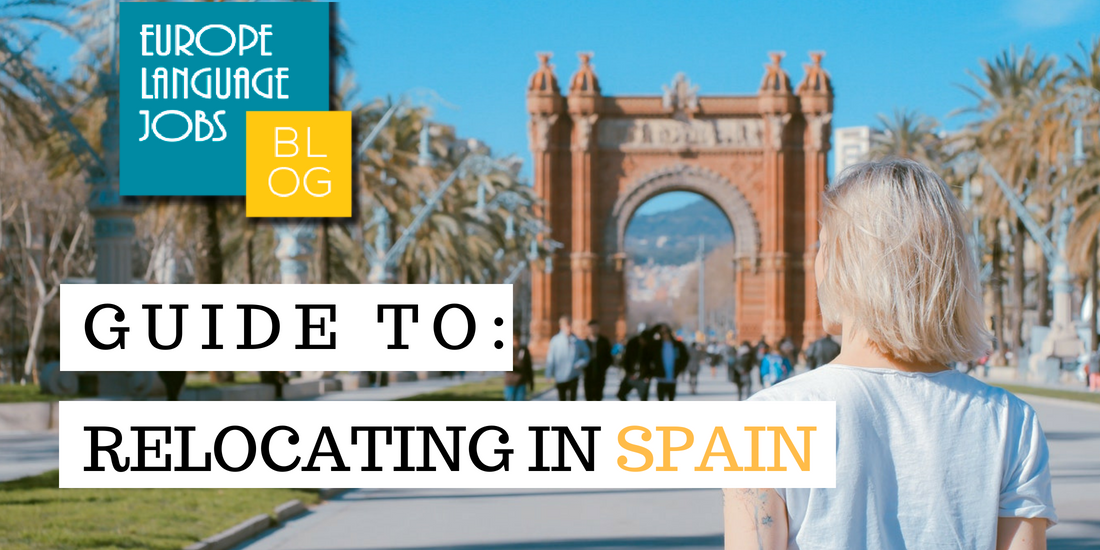Relocating in Spain has always been popular with Europeans, and with Britons in particular. With the sunny weather, great food and a relaxed way of life, it’s not hard to see why. The country is steeped in history and beauty, immortalised in its breath-taking architecture, which ranges from the buildings influenced by the Moorish occupation, especially in the south, to Antonio Gaudi’s modernist masterpieces in Barcelona. However, the relocation process is not always an easy one, but this should give you an all-encompassing guide on moving to Spain.
EU nationals don't need a visa to visit, live, or work in Spain. However, anyone staying for more than a few week’s holiday should get a Número de Identificación de Extranjero (NIE or foreigner identification number) and a Tarjeta de Residencia (residency card). Both can be obtained from an Oficina de Extranjería. In the bigger cities, obtaining this can prove difficult since hundreds of people are often at their offices daily. Therefore, trying to obtain the NIE on the outskirts of a city can make it a much easier, and faster process.
People from outside the EU need a visa to live and work in Spain. You also need a Social Security number before you start working so that you can receive your wage, however in most cases this can be done in less than an hour at your city’s main Oficina de la Seguridad Social. You will need to arrive before 9am, go to the desk for a ticket and wait in line to receive your number.
As Spain is such a popular country among expats, most job offers have a huge amount of applicants, meaning that you may face a lot of competition for each vacancy. Due to this and the fact that Spain’s economy is still rather weak after the 2008 crisis, it is recommended that you secure a job before you move to the country.
Many arrivals in Spain will find the cost of living considerably cheaper compared to other central European countries. However, this is reflected in the wages, with Spaniards earning on average €20,150 per year compared to the global average €26,500. The cost of living does increase somewhat in the bigger cities, namely Barcelona and Madrid. However, compared to other capital cities worldwide, the cost is much more reasonable, but expect to find the price of accommodation and utilities to be expensive if you are looking to live in the city centres of Madrid and Barcelona.
Working Life in Spain
Spain has 14 public holidays each year. Two of these depend on your local municipality. In general, employees receive 22 calendar days of paid holiday each year. August is a popular month for Spaniards to take holidays – so expect many places to close! For many years siestas and long lunches to avoid the heat of midday, were a tradition and a famous Spanish stereotype, but these are now mostly long-gone, except in some more rural areas. This changed in response to the crisis of 2008 and increasing global competition. The average working week is 40 hours, though this depends on the sector you work in.
The economy of Spain is still slowly recovering after the crisis, with some cities performing better than others. The youth unemployment rate still remains a critical issue, at a frightening 40%.
As a result, a lot of Spain’s talented youngsters have decided to move abroad. Most of the unemployed population are generally those over 40 and unskilled workers, who find it increasingly difficult to get back into the labour market after being out of it for such a long time.
For those wanting to relocate to Spain, fear not. The main cities, such as Madrid, Barcelona and Valencia have a huge international population. As a result, many multinational companies have chosen to open large offices in these cities, and therefore need to recruit multilingual speakers.
Companies with customer service, IT and marketing roles require a lot of employees who speak other languages, as they need to communicate with a global client base. The languages most demanded in Spain (apart from Spanish) are English, German and Dutch. You can see offers by language in Spain on the Europe Language Jobs website. For English speakers in particular, there are always opportunities to teach English as a foreign language (TEFL) with many schools, institutions and summer camps constantly recruiting.
Accommodation in Spain
Finding suitable accommodation in Spain can often prove to be a tricky process for a lot of new arrivals. An important piece of advice would be not to sign anything before seeing a place in person, as you are in danger of being disappointed or even scammed, which is an issue, especially in the bigger cities. We would recommend reserving a hotel or Airbnb room before arriving so you can give yourself some time to assess your options. There are several good sites across Spain to help you find accommodation:
It is also recommended to join Facebook groups for expats in your area. There are often rooms available that you may not see on other sites, so you may be able to find a bargain. For the vast majority of rental agreements, you will need to present paperwork to the landlord to sign the contract. This will include your work contract, monthly payments, NIE, passport and references in some cases.
Opening a bank account
Having a Spanish bank account while you are living in Spain is essential. Employers will usually prefer you to have a bank account here in order to pay your salary, as paying to an international account can sometimes charge them considerable fees. Almost everywhere across Spain, banks are open from 8am – 2pm Monday – Saturday. You will need to bring your passport, NIE and residence certificate in order to open an account. If you are aged between 14 and 30, it is worth registering for a Carné Joven This is a card entitling you to a big variety of discounts across Spain, such as in museums, transport etc.
Heads-up! Transferwise is a fantastic way to send money for next to nothing!
CVs in Spain
Due to the high unemployment rate in Spain, a job can be hard to come by. This is why producing a well-written, tailored CV is highly important and can give you a key edge over your competition. There are 6 main sections to include:
Personal details Make sure you include the following details: - Name - Birthdate - Nationality - Current address - Phone number (with dialing code if necessary) - Email address - NIE (if you have one)
Professional photo Having a professional headshot photo is a common sight in any Spanish CV, a feature rarely seen in the UK, for example. Make sure it is recent and place it in the top right corner of your CV.
Language skills Speaking more than one language is a great skill to have and is a valuable asset to many employers, particularly for those who have an international client base. Make sure to add any languages that you speak and the level at which you currently are.
Make sure they stand out - see examples of how to present them here.
Experience Again this should be written in reverse order. List your previous companies, including addresses, dates, job titles and descriptions of your tasks and responsibilities. Make sure that you keep the descriptions of your roles as relevant as possible to the position that you applied for. It is also important to add keywords where necessary, as the majority of CVs are scanned by a machine for relevant keywords.
Education
List all of the institutions that you have attended, with dates, subjects taken, and any grades. You should start in reverse order, starting with your university studies (if applicable). You can also note any courses you have completed outside of full-time education.
Additional Information & Skills Here you can add additional information that can enhance your reputation. It is a great opportunity to list any skills you have, such as SEO, Blogging etc. You can also list any interests or memberships that you might have. In addition, if you have a blog or website then you can also include that.
The jobseekers market is as competitive as ever and you must do everything you can to give yourself the advantage to set yourself apart from the competition. To do this, look at some other useful CV tips.
Relocating to Spain can be a life-changing decision for many Europeans, who come for a relaxed way of life, great weather and delicious cuisine. Thinking of taking the plunge? Register to find a job in Spain.






IFEANYICHUKWU OBURU1y ago
Great piece.
Great piece.